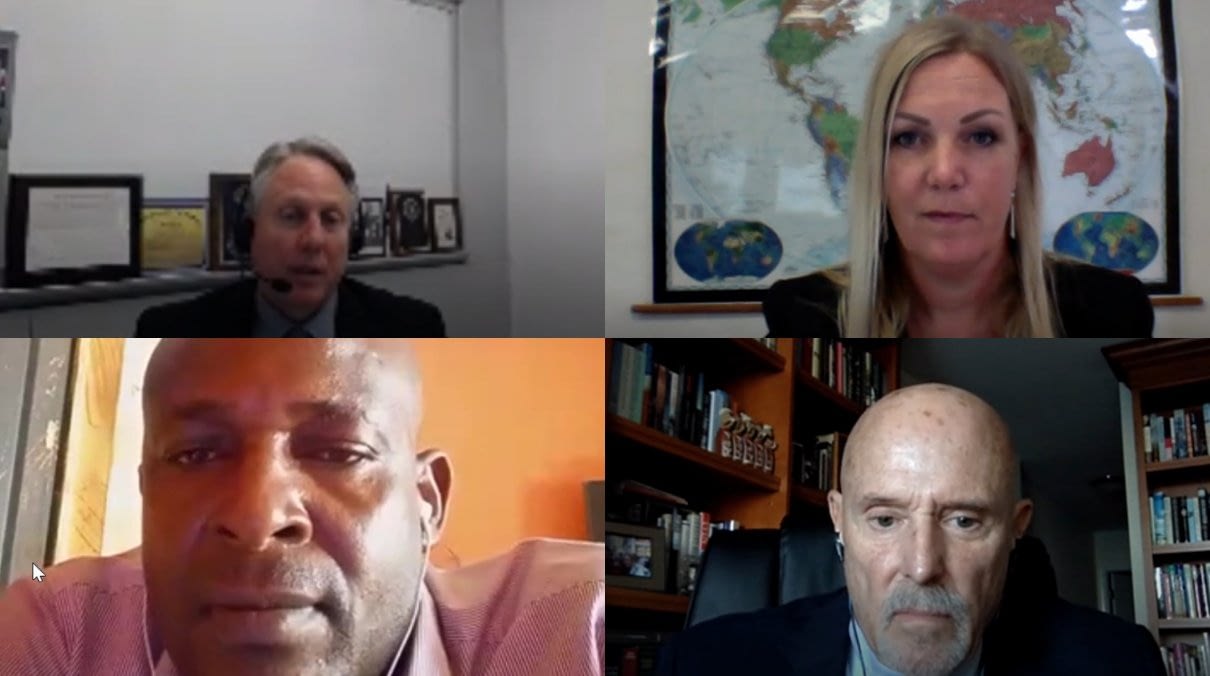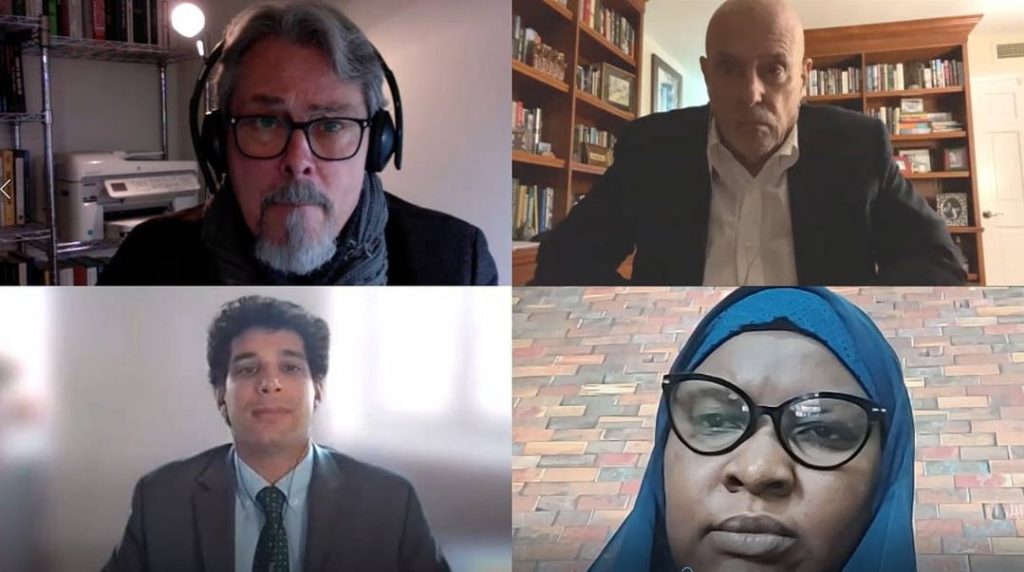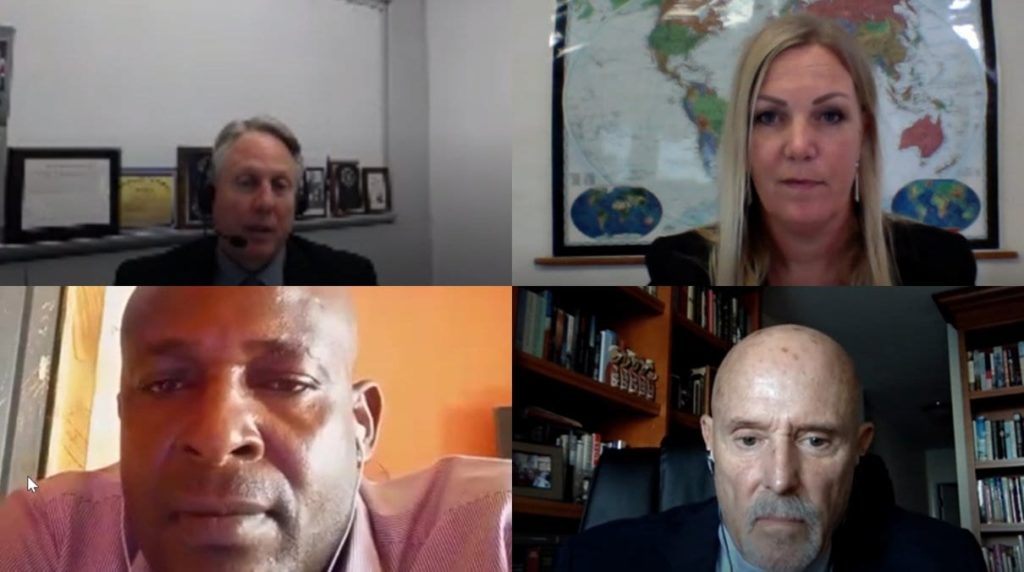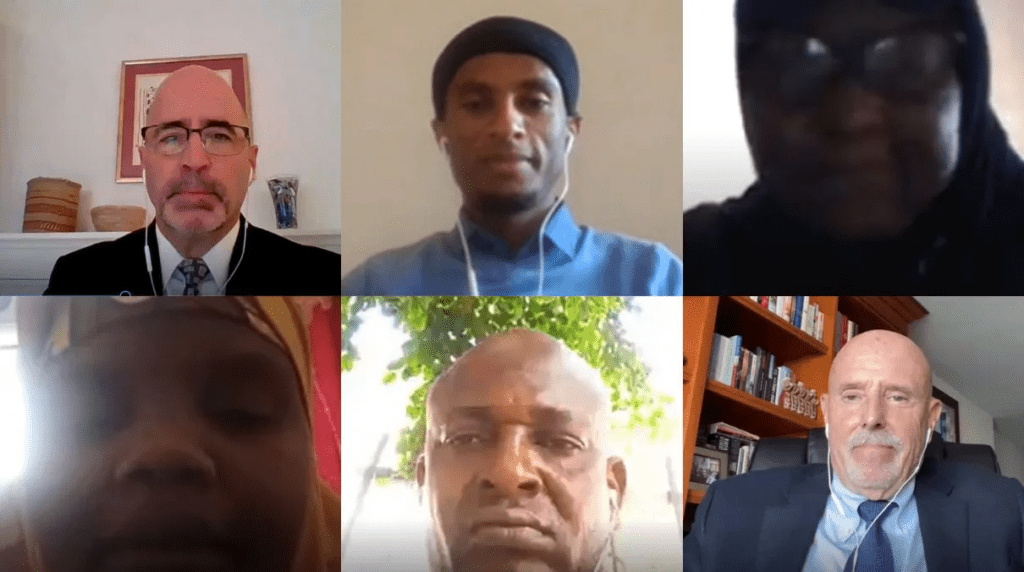
In December 2020, the IIJ convened the second iteration of the IIJ Core Course: Using Information Derived from Intelligence to Generate Evidence for Terrorism Investigations and Prosecutions. The course was delivered in an online format in light of the ongoing COVID-19 global health pandemic. The course was convened with both a sectoral and regional focus, bringing together judges, prosecutors and investigators from Ethiopia and Nigeria, with financial support from the U.S. Department of State.
The main objectives of this course were to:
- deepen justice sector practitioners’ appreciation for the value of using intelligence to generate evidence for terrorism investigations and prosecutions;
- increase their knowledge of the challenges in doing so, and of strategies for addressing these challenges; and
- build more effective and rule of law-based counter-terrorism capabilities and capacities
The IIJ, together with four practitioners from the United States and Switzerland, convened three interactive sessions on Intelligence Analysis & Collection, Terrorist Explosive Devices and Crime Scene Evidence, and Mutual Legal Assistance. Each session was presented by a keynote speaker via video recording and concluded with an interactive, hypothetical case study exercise.
The practitioners from Ethiopia and Nigeria shared their perspectives, insights and personal experiences on the gathering, handling, and preserving of evidence, inter-agency cooperation, judicial investigations, and regional and international cooperation. They reported that they found the IIJ Core Course immensely valuable and commended the IIJ for its continuous efforts to build practitioner capacity to enforce the rule of law despite the challenges presented by the COVID-19 pandemic.
This successful second course followed a first iteration delivered in Malta in July 2019. The first course engaged more than 55 practitioners from Cameroon, Canada, Côte d’Ivoire, Ethiopia, Kenya, Lebanon, Mali, Malta, Morocco, Niger, Nigeria, Senegal, Sri Lanka, Switzerland, Tunisia, the United Kingdom and the United States. Participating practitioners examined and evaluated success factors, obstacles, and lessons learned, as well as strategies to facilitate the successful use of intelligence to generate evidence. The course provided a platform for judges, prosecutors and investigators to examine a series of 13 hypothetical scenarios based on real-world cases in which intelligence-derived evidence was used in criminal investigations and prosecutions.
For more information on the IIJ Core Course, please contact Director, Programmatic Unit, Gail Malone.



